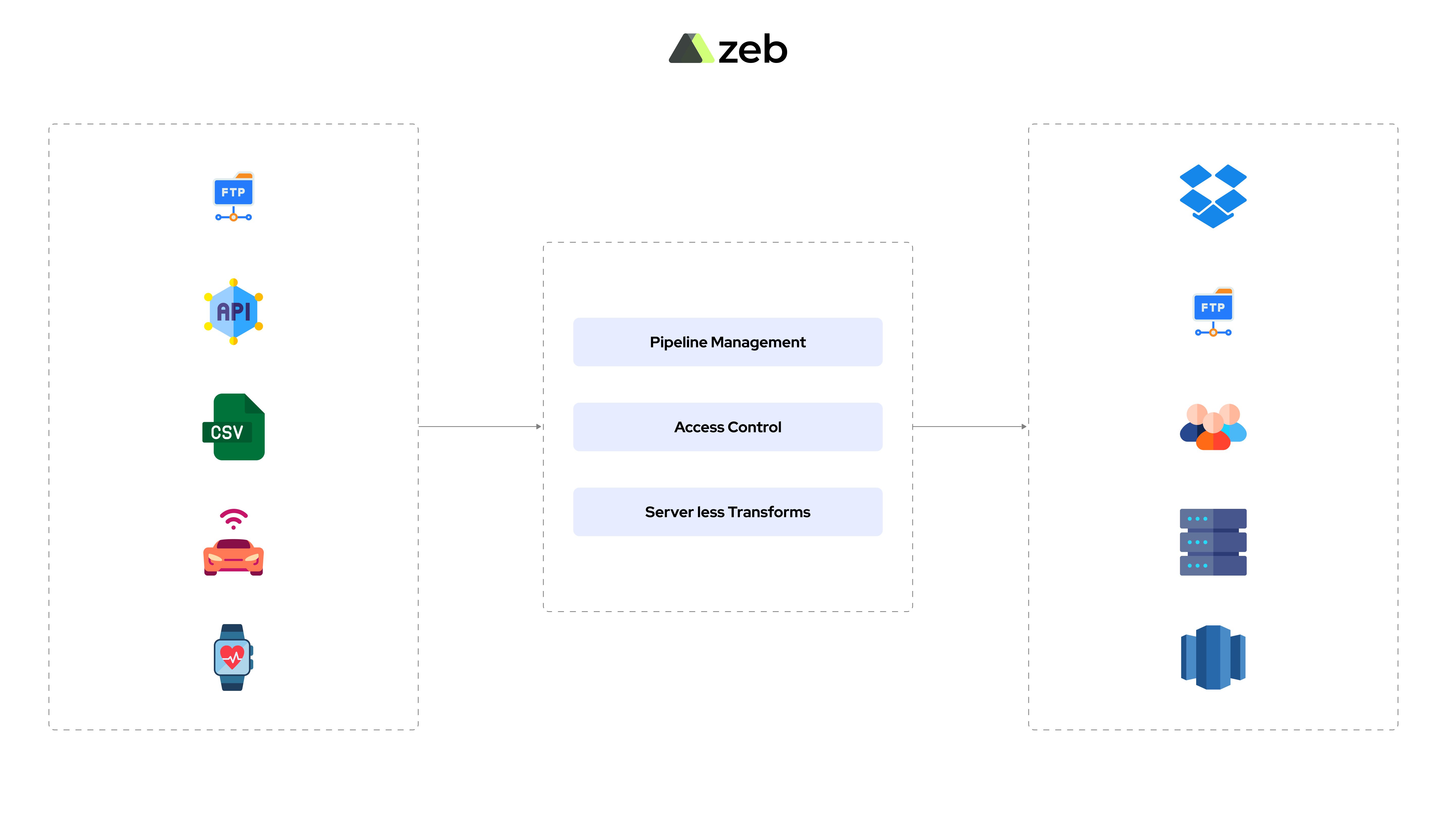“Identifying every specific pain point that needs improvement & adjusting the existing process, followed by a plan to do things differently is paramount. This will take the company into the winning marketplace ” – Gartner
As a company scales, its IT infrastructure becomes increasingly complex, leading to silos. Supporting the growing number of applications and services requires scaling IT infrastructure. However, managing these changes without compromising performance poses a significant challenge. Achieving such coherence is only possible by implementing DevOps, GitOps, and DataOps within the AWS ecosystem.
IN THIS ARTICLE:
-
- Improve Business Agility and Deployment with DevOps on AWS
- Simplify Infrastructure Upgrades with GitOps on AWS
- Enhance Data Management and Synchronization with DataOps on AWS
DevOps on AWS
Continue Reading
DevOps is a software deployment practice that enhances collaboration between developers and operations teams by integrating design, development, testing, and deployment into a CI/CD pipeline, specifically within the AWS environment. By leveraging AWS services and tools, DevOps aims to streamline software development, supervision, monitoring, and management, thereby complementing business agility and contributing to ongoing development and efficient deployment.
Key Benefits of DevOps on AWS
- Achieve Quicker Delivery: Utilizing AWS services for DevOps practices enables delivering features and functionalities swiftly, helping your organization stand out in a competitive industry.
- Increase in Quality Control: Collaboration between development and operations groups on AWS improves product quality.
- Fix Issues Quickly: DevOps on AWS ensures a faster response to technical difficulties in deploying applications.
- More Room for Inventive Solutions: Automation and frequent evaluations on AWS allow the team more flexibility for innovation.
- Lowest Production Cost: DevOps on AWS assists in reducing the administrative and operational expenses of your teams with effective collaboration.
GitOps on AWS
GitOps is a software development practice that uses a Git repository as the sole ‘source of truth’ for all code involved in creating infrastructure and deploying apps, adapted specifically for AWS. Developers utilize AWS services alongside GitOps to automate the continuous delivery of cloud-native applications, facilitating infrastructure upgrades and feature delivery.
Key Benefits of GitOps on AWS
- Single Source of Truth: With GitOps, developers can use version control to eliminate “context switching,” which eats up valuable time.
- Version Control: Centralized modifications make it easier to restore alterations on AWS.
- Greater Security: Strong encryption on AWS enhances control and maintains modifications securely.
- Optimization: Cleans up unnecessary files and optimizes the repository, tailored for AWS environments.
- Speed: GitOps methodology reduces the Continuous Delivery lifecycle drastically on AWS.
DataOps on AWS
DataOps is a data management model that streamlines the planning, implementation, and maintenance of downstream applications based on data and data analytics, all within the AWS framework. Utilizing AWS technologies alongside tools like Liquibase for version control of databases, DataOps on AWS ensures efficient data management and synchronization across the data lifecycle. To avoid roadblocks, you can coordinate more easily, complete projects faster, and achieve breakthroughs. The delivery of database modifications from lower environments to higher environments (development, test, and production) is equally automated by GitLab CI/CD. Furthermore, the stakeholders can manage the modifications to their target database during the approval phase before delivering or rolling back those alterations to restore an earlier version.
To encapsulate, DataOps enables data management and synchronization, transforming data across the data lifecycle/data flow. It will help you to automatically detect and handle data inconsistencies to maintain continuous data streams. The ability to restore changes that are deployed at every stage without manual intervention can increase the efficiency of database changes implemented on multiple environments.

Key Benefits of DataOps on AWS
- Repairing Bugs: Enhanced coordination between DevOps and DataOps teams on AWS reduces the time required to address errors.
- Efficiency: A robust DataOps pipeline on AWS enables data specialists to collaborate in real-time, and improve data quality & analytics.
- Establishing Objectives: Data and development departments on AWS can maintain corporate objectives in real-time.
- Stay Competitive: Improving the data analytics process on AWS enables rapid adaptation to market changes.
- Faster Response: Teamwork on AWS makes it easier to alter and manage development demands.
The ultimate outcome of utilizing all three practices on AWS is greater coordination and an exceptional application that stays ahead in a competitive industry.
Let’s Wrap Up
Organizational silos can hinder your company’s ability to achieve agility and success. Overcoming these silos requires collaboration, and what better way to achieve this than through our groundbreaking trio – DevOps, GitOps, and DataOps, all within the AWS ecosystem.
As an AWS Partner, we specialize in breaking down organizational silos and leveraging the power of AWS to implement GitOps & DataOps. We collaborate with businesses across various sectors, assisting them in growth and success.
Adopting an “agile” philosophy, we focus on building, testing, and deploying new apps and updates swiftly and securely on AWS. With our expertise, you can reduce deployment time from months to hours, ensuring faster and more efficient implementation of changes.
Let’s bring the smart workspace to your business through DevOps, GitOps, and DataOps on AWS.
Call Us Today.